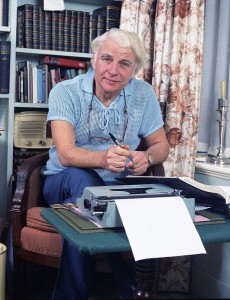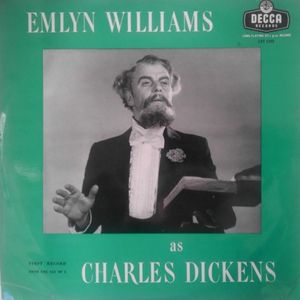In today’s Wall Street Journal I review the Broadway premiere of David Mamet’s China Doll. Here’s an excerpt.
* * *
“China Doll” is a new two-man play by one of America’s best living playwrights, starring one of America’s greatest actors. In recent weeks, however, it’s also become a buzz machine: Has David Mamet, who is 68, lost his fastball? Is Al Pacino, who is 75, really reading his lines off concealed teleprompters? Over and above the gossip, it’s a matter of humiliating record that “The Anarchist,” Mr. Mamet’s last play, crashed and burned three years ago, closing on Broadway after 17 performances, while the one that preceded it in 2009, “Race,” was good enough but not up to form.
 So what about “China Doll”? Well, it turns out to be a strongly wrought story of considerable moral complexity, one that will hold your attention all the way to the brutal end. I can’t yet tell you whether it has the legs of “American Buffalo” or “Glengarry Glen Ross,” but I do know that I want to see it again—and while I believe Mr. Pacino has failed to do it justice, I’m still glad I got to see him give it a try.
So what about “China Doll”? Well, it turns out to be a strongly wrought story of considerable moral complexity, one that will hold your attention all the way to the brutal end. I can’t yet tell you whether it has the legs of “American Buffalo” or “Glengarry Glen Ross,” but I do know that I want to see it again—and while I believe Mr. Pacino has failed to do it justice, I’m still glad I got to see him give it a try.
Mr. Pacino plays Mickey Ross, an immensely rich businessman and behind-the-scenes political donor who has taken unto himself a much younger mistress who never appears onstage and whom he will pay any price to please. Long past his prime, he knows exactly why she’s interested in him, and admits it to Carson (Christopher Denham), his protégé-flunky: “Is it youth or beauty? No. It’s wealth.” But Mickey is old enough to be willing to settle for the cold comfort of what Robert Frost called “boughten friendship,” and he is so besotted with her favors that he makes the mistake of paying more attention to his mistress than to his business, at which point the ever-circling sharks smell blood in the water and move in.
This is, of course, a quintessentially Mametian situation, and it’s also a promising subject for a play, especially in our gaudy age of super-wealth. But what makes “China Doll” so interesting is that Mr. Mamet, who in his previous plays has taken what I think could be fairly be called a suspicious view of women, paints Mickey not as a victim of their wiles but as a Lear-like titan whose problems spring from within himself. As played by Mr. Pacino, he is seedy, vulnerable and unexpectedly weak…
Yes, he’s using teleprompters—you can see them if you know where to look—and though he isn’t at all obvious about it, I never felt that he was at ease with his lines. Especially in the first act, his pace is much slower than you expect it to be. Is this a purposeful choice, a way of showing us that Mickey’s powers are failing? Or is Mr. Pacino himself no longer quite equal to the fearful demands of mastering the two-hour-long script of what is for all intents and purposes a one-and-a-half-man play?…
* * *
Read the whole thing here.

 In today’s Wall Street Journal “Sightings” column I write about a long-forgotten but incomparably vivid stage memoir, Emlyn Williams’ George. Here’s an excerpt.
In today’s Wall Street Journal “Sightings” column I write about a long-forgotten but incomparably vivid stage memoir, Emlyn Williams’ George. Here’s an excerpt. Noël Coward, who knew Williams well, described his life as “the Cinderella story of all time.” Indeed, his childhood and youth, of which “The Corn Is Green” is a fictionalized account, border on the unbelievable. Born George Emlyn Williams in 1905 in a tiny coastal village in north Wales, he was the oldest son of a hard-drinking sailor turned pub-keeper and his prudish, long-suffering wife. Young George, as he was then known, might well have become a common laborer save for the fact that Sarah Grace Cooke, one of his schoolteachers, noticed that he was exceptionally bright and took him under her generous wing. (Bette Davis played her in the 1945 film version of “The Corn Is Green.”) Seven years later, he won a French scholarship to Oxford, where he started going to the theater obsessively and resolved to spend the rest of his life on stage. In 1927 he landed a supporting part in a West End hit called “And So to Bed,” writing a hit of his own, “A Murder Has Been Arranged,” three years after that. He never looked back.
Noël Coward, who knew Williams well, described his life as “the Cinderella story of all time.” Indeed, his childhood and youth, of which “The Corn Is Green” is a fictionalized account, border on the unbelievable. Born George Emlyn Williams in 1905 in a tiny coastal village in north Wales, he was the oldest son of a hard-drinking sailor turned pub-keeper and his prudish, long-suffering wife. Young George, as he was then known, might well have become a common laborer save for the fact that Sarah Grace Cooke, one of his schoolteachers, noticed that he was exceptionally bright and took him under her generous wing. (Bette Davis played her in the 1945 film version of “The Corn Is Green.”) Seven years later, he won a French scholarship to Oxford, where he started going to the theater obsessively and resolved to spend the rest of his life on stage. In 1927 he landed a supporting part in a West End hit called “And So to Bed,” writing a hit of his own, “A Murder Has Been Arranged,” three years after that. He never looked back.

